Congratulations to our Spring APHD graduates, June 2023!
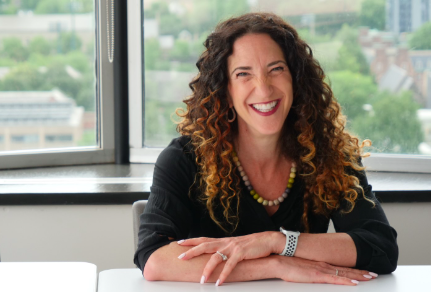
SUSAN OSHER
Counselling and Psychotherapy, MEd
Words of wisdom:
Students are admitted into the program with different backgrounds, varying years of experience interests and education. I appreciated the non-competitive environment which encouraged me to explore and grow. Curiosity and sharing is the bedrock of the program and one learns as much from readings, as from the other students and staff.
What next?
I am a more skilled, reflexive, competent clinician after the program and internship. I am able to offer the people I serve, primarily struggling with eating disorders, a collaborative, validating, safe space for them to grow and live a more authentic, connected life.
Why OISE?
During my time at OISE, I was exposed to many different therapy approaches, as well as the opportunity to explore in more depth, the modalities that interested me the most. Being part of the University of Toronto, I learned from some experts in the field and worked with a diversity of other students, expanding my own outlook and understanding. I found the program transformative, both professionally and personally.
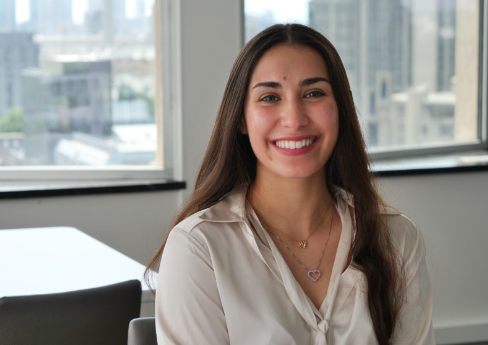
KIANA HABIBAGAHI
Developmental Psychology & Education, MEd
Words of wisdom:
Graduate school can feel like a balancing act where all eyes are on you. Some of your audience members may cheer you on, especially at times when you tumble and can't see the point of going on. Some members may be silently watching, and their feelings can be harder to read. But the loudest voice in the crowd may be that of your own; it may tell you that you’re not good enough, and that you don’t belong. It’s ok to feel this imposter syndrome. Acknowledge it, don’t ignore it. Try to surround yourself with the tools and people who remind you that you deserve to be here. Tell yourself you do belong, especially at times when you feel the worst (it can be very hard). The impostor syndrome will slowly quiet down.
What next?
More graduate school! I will start my MSW program this fall! I’m hoping to train to become a licensed clinical social worker to work with families and school children.
Why OISE?
We have the amazing opportunity to be taught by leading experts in the field who are extremely talented, knowledgeable, and compassionate. Instructors also provide the research tools and flexibility to help us grow as graduate students and explore our academic interests. Working at Dr. Michel Ferrari’s lab has been a particularly wonderful experience that has allowed me to pursue what I’m passionate about, while offering me a tightly-knit community at OISE. I am so grateful and indebted to Dr. Ferrari and my lovely lab mates!
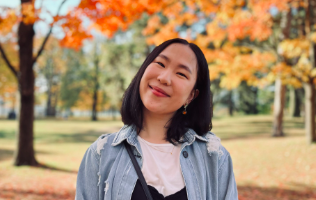
JENNY HUI
Clinical and Counselling Psychology, MA
Words of wisdom:
Find what is life-giving for you - whether it’s a course, a research project, a cause for advocacy, an extracurricular activity, a form of rest, a community of people, or all of the above. As a student at OISE, your experience is rife with opportunities for exploration and innovation. What sort of research inspires you? How do you rest and recharge? Which clinical modality are you curious about? What sort of extra curriculars pique your interest? There is no one way to be an OISE student; it’s our diversity that makes this place vibrant.
What next?
I’m continuing into the PhD for Counselling and Clinical Psychology at OISE.
Why OISE?
The best part about my time in this program has been, without a doubt, the community I’ve met. The students at OISE possess compassion and curiosity, and together make up a supportive network of individuals who are passionate about advancing equity in academia and clinical practice.
I also am incredibly grateful to have met and collaborated with scholars who champion social justice through research and advocacy. This includes faculty at OISE, as well as academics from international institutions. For example, through colloquia presentations hosted by the Department for Applied Psychology and Human Development, I met scholars such as Dr. Steven O. Roberts and Dr. Alex L. Pieterse, who radically shifted my professional trajectory and personal worldview.
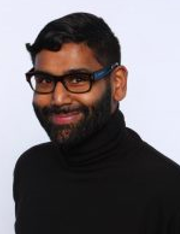
BHISHAM KINHA
Counselling Psychology, EdD
Words of wisdom:
To expect that any graduate program will hand deliver exactly what you need gives it too much power over your academic journey and risks you being disappointed at the end of it. So, be intentional, agentic and strategic as you navigate this experience in order to really make what you can of it. Your time at OISE offers a lot of raw material to work with during and long after your degree.
What next?
I'm asking the same question! What I know for sure is that any path I take will include psychotherapy practice, which is rich and rewarding work. That said, I never want to be too far away from academia. Maybe The Fates will lead me to Postdoctoral work.
Why OISE?
I can answer that twice. For my Master’s, OISE, as a multidisciplinary space, assembles cohorts for their Counselling Psychology program (now called Counselling and Psychotherapy) with a range of experiences academically and professionally. Coming from a humanities background, where my undergraduate work had me elbow-deep in poetry, plays and philosophy, the M.Ed envisioned and actualized a place for me in psychology. Then, for my Doctoral degree, it was the mentorship. My academic supervisor stretched and supported me over years and further fertilized my love of scholarship. This (supervisory) relationship has been a special one that’s changed my life indelibly.
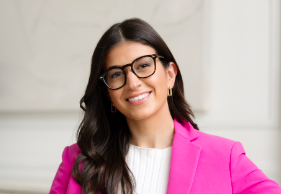
ARIANA SIMONE
School and Clinical Child Psychology, PhD
Words of wisdom:
While there is pressure to do and try everything in the short few years of grad school, remember that opportunities don’t end here! There is always time to continue learning and trying new things in your career. Remember to lean on your cohort mates who will be there with you the whole way, and to touch base with SCCP students in upper years who have a whole host of wisdom. And finally, maintain social contacts outside of SCCP/OISE – it’s important to detach from the hard work mentally and physically!
What next?
I am excited to be starting my career at the SickKids Centre for Community Mental Health in the fall.
Why OISE?
What I loved most about the School & Clinical Child Psychology program was that the program community felt like family. The course instructors, supervisors, students, and support staff were always friendly, collegial, and supportive. Not only am I graduating with my degree, but I am graduating with a lifelong cohort of colleagues and friends. I will always be grateful for the people I met along this journey, and of course, the quality research and clinical training that I received at OISE.
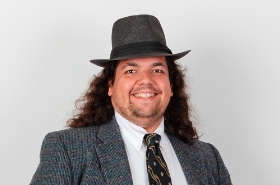
KAI E. FORCEY-RODRIGUEZ
Developmental Psychology and Education, MEd
Words of wisdom:
A wise friend of mine from the School Clinical & Child Psychology program once said, “the mutual benefits of learning from each other are limitless”. In the DPE MEd program there are only two main required and then you can take any 4 courses of your choosing that are open to all students across programs in APHD, and then you can take 4 courses from other departments that are open to all OISE students if you choose. Therefore, if you want to focus on mental health, like I did, check out what’s available. In these courses you will find amazing peers across programs and if you feel that you have extra time because the DPE MEd program is flexibly designed program consider joining the APHD Student Association where you have an opportunity to make a difference in the department and OISE as a whole like I did. This is a great place to both learn, share perspectives, and challenge or review current established methods or frameworks in the education and psychological field. Fortune favors the bold and graduate studies are to a fair degree what you make of it so by owning your own learning with the scaffolding from your courses, embracing your curiosity and asking challenging questions, and actively listening to others' stories is how we change the world for the next generation and those we support professionally. Therefore, there is no such thing as an ambitious research topic and don’t be afraid to think outside of the box for that is how I turned a final paper for APD 1297: Mental Health in the Classroom about Autism and Mental Health into a sole-authored publication in the Canadian Journal of Autism Equity and other successes.
What next?
After OISE, I hope to join the workforce (currently seeking full time employment) so I can gain permanent residency in Canada along with becoming a professional coach/consultant working with neurodiverse people like myself and other greater community stakeholders with my new coaching/consulting business called “Let’s Get Curious Together! Coaching/Consulting” before returning to university to complete a graduate-level degree program in Counseling Psychology or Social Work so I can become a mental health professional for neurodiverse individuals. I also plan to present my research and do workshops on Autism and Mental Health specifically in the area of fostering well-being and preventative care for self-harm, suicidality, and other severe mental health concerns in addition to promoting and consulting on family support provision and accessibility in living, work, and business environments from the lens of social justice and acknowledgement that accessibility of all kinds is a social determinant of health for all.
Why OISE?
The DPE MEd program provides the flexibility for students to ascertain which direction in the psychological field and connect with faculty of your particular area of interest including peers of those programs.
Here are my top 5 highlights from my time at OISE:
- Became possibly one of the most connected well-known students at OISE through the numerous hats I wore and collaborations. Including enjoying amazing events hosted by all departments and OISE student orgs. like Arts in Ed. OISE and The PhD Sharing and Caring Collective.
- My work as EDI Officer on the APHD SA Exec.
- Made students of all backgrounds' mental health and well-being an EDI issue whereby--we provided 250 hours of mental health support coaching support (utilizing numerous therapeutic modalities) in addition to the continued provision of APHD Racialized Student Community Drop-In sessions.
- Worked across programs to brainstorm, liaise, and meditate mutually beneficial solutions with APHD or program leadership (either directly or behind the scenes e.g. Child Study Education in Conversation Part II).
- Proposed an in-house collective care mental health pilot program for the APHD Community.
- Worked with the APHD IDEAA committee to expand upon the EDI agenda to include neurodiversity with an intersectional lens and ensure its representation.
- Provided university navigation and departmental academic advising support for numerous students in APHD
- Served on the inter-departmental team that revived the OISE Graduate Student Association to reestablish the student voice in OISE.
- Became a co-chair of the groundbreaking OISE Graduate Student Research Conference (2023) that feature the first ever panel bridging the divides between education and real estate and much more.
- Received recognition by my peers and the APHD Dept. for my extensive work in the department with the APHD Star Award at the 2022-2023 APHD Research Gala.
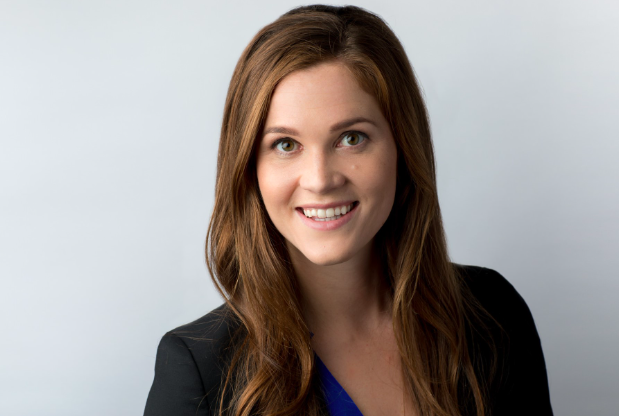
HANNA WICKSTROM
Developmental Psychology and Education, PhD
Words of wisdom:
Here are three pieces of advice that helped me, maybe they will help you too. First, live your life. Fall in love, start new chapters, accomplish your personal goals. You can have a life and complete a PhD at the same time. Two, protect your time. Identify the time of day when you’re the most productive and then block this time out for writing. Whenever possible, do not schedule any other commitments during your most productive time of day. Three, teamwork makes the dream work. You will be surrounded by brilliant people with diverse experiences, perspectives, and skills. Collaborate with your colleagues and step outside your comfort zone. This is a great opportunity for personal and professional learning.
What next?
I will continue to integrate theory and practice by researching at universities, while also teaching kindergarten and elementary students in Ontario’s public school system. I want to continue my work in the field of play-based learning and mathematics education by deepening our understanding of how young children learn, how to strengthen our approaches to math instruction in the early years, and how to support educators in their practice.
Why OISE?
Simply, the people. I had a wonderful supervisor that runs a very active lab. I had many opportunities to grow my research skills by engaging in classroom-based research, publishing academic articles, and presenting at conferences. This was all possible due to Dr. Angela Pyle’s collaborative research team and welcoming working environment. At OISE, I also had the privilege of sharing key findings from research with educators through opportunities for teaching pre-service teacher candidates, running workshops for in-service educators, and by creating resources to support educators in their practice.
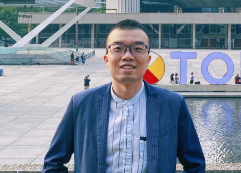
SENHAO HUANG
Developmental Psychology and Education, MEd
Words of wisdom:
As a student enrolled in the MEd DPE program, you may experience a level of flexibility in taking electives like you’ve never experienced before in your previous education, and it is very likely you will get suggestions from your peers on which courses are easy to score a high mark. But you should really take into consideration whether you are interested in the course subject, how it allows you to build on your existing knowledge, and how it will benefit you in your future career or education. There are many interesting courses offered within the DPE program and beyond, and they are yours to discover!
What next?
I will be starting my next chapter as an administrative staff at the Rotman School of Management at the University of Toronto.
Why OISE?
During my time there at the Developmental Psychology and Education (DPE) Program, I had the opportunity to meet and work closely with a group of amazing peers coming from various backgrounds and industries under the guidance of a world-class faculty. The Program Evaluation (PE) Emphasis that is offered by the DPE program is absolutely fascinating, as I find what I learned from those courses is applicable beyond the scope of education and comes in handy for professionals across fields. Among everything I had enjoyed from my journey at the OISE, the time I worked as a student mentor for the DPE program is definitely a highlight, where I got the chance to plan and organize in-person events for students within the program which allowed me to form new connections and bring together the DPE community. I truly miss that period as every day I worked as a student mentor reminds me of how supportive everyone is there and what an unforgettable journey it is to study at OISE.
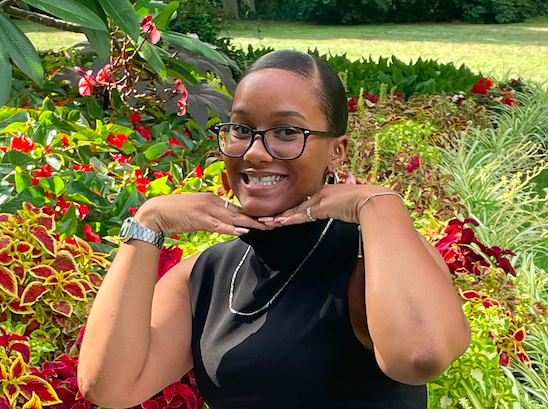
TAMEKA BRIGGS
Child Study and Education, MA
Words of wisdom:
Do not let the reality of being in higher education overwhelm you; give yourself grace and be kind. Find time to enjoy the moment of being a student for the last time (for many of you) before entering the workforce. Communication with peers and professors is crucial in managing the workload. Also, do not compare yourself to others in the program; everyone has something unique to offer, so avoid comparing yourself to others. Rather than comparing yourself to others, reflect on your progress and growth from where you were to where you are now and where you will be.
What next?
I am proud to announce that I will be teaching grade three in a First Nations community in Northern Manitoba for the upcoming school year.
Why OISE?
My decision to attend OISE was influenced by a recommendation from a high school student-teacher from the program who spoke highly of the school and felt it was a perfect fit for me. Despite the vast campus of the University of Toronto, OISE offers a small campus and classroom sizes where I have formed meaningful relationships with my cohort. The relationships formed from my cohort created a support system like nothing I have experienced before. One of the highlights of my experience at OISE was the opportunity to teach across three different grade levels in different communities with guidance from veteran teachers. Another advantage of attending OISE was accessing what I call ‘teacher heaven’ — OISE Curriculum Resources. This library has extensive resources, an excellent benefit to utilize during practicum.
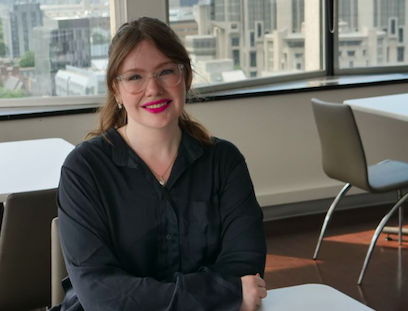
BRITTANY PASHER
Counselling Psychology, MEd
Words of wisdom:
Pursuing higher education can be a challenging and rewarding endeavor – try to practice holding space for all the various truths about your lived experience throughout this chapter. Also, know that every effort to maintain and attend to your wellbeing holds significance – “practicing what we preach” as mental health practitioners will allow us to honour the needs of our clients, loved ones, communities, and ourselves.
What next?
I am currently a Registered Psychotherapist (Qualifying). I work full-time with the Canadian Mental Health Association as a Clinician, providing free mental health services within the Ontario Structured Psychotherapy program. I also intend to register as a Social Worker with the Ontario College of Social Workers and Social Service Workers (OCSWSSW) in the near future.
Why OISE?
A major highlight of the CP program at OISE was the application of trauma-informed and anti-oppressive practices found within each course. This was especially important to me in choosing a master’s program to ensure that I can provide mental health care that is culturally responsive and socially-just. I also appreciated the various opportunities to personalize my experiences to who I envisioned myself to be as a psychotherapist. I was able to tailor my practicum placement, assignments, work-study roles, and course selections to the clinical settings, populations, and skillsets I was interested in, which allowed me to make the most out of what I was learning.